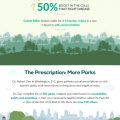The COVID-19 pandemic has entered its third year, with the virus altering many aspects of our everyday life in unexpected ways to pave the way for the so-called new normal. Many of us still opt to spend more time at home for safety to avoid exposure to the virus that causes COVID-19.
We’ve entered a time where health is of utmost importance. Healthcare systems worldwide have been emphasizing boosting one’s immune system and eating a balanced diet more than ever.
Mental health advocates have also discovered the benefits of taking a break from excessive work. And speaking of mental health, it’s high time we understand that what’s good for the heart is good for the mind.

Source: Pexels
The Mind-Heart Connection
We’ve known for a long time that diseases and disorders that block heart arteries also obstruct arteries in the rest of the body, including the brain. It all comes down to damage to the arteries, which are vital for blood flow and oxygen delivery to the organs. Arterial damage causes arterial blockages, which in turn results in heart disease and heart attacks, strokes, peripheral vascular disease, and vascular dementia.
Researchers are now concentrating on why this is the case. What is the link? It appears that the brain needs a good blood flow to steer clear of tubular proteins. As these proteins accumulate and become tangled in the brains of Alzheimer’s patients, blood flow decreases, thereby elevating the risk of this particular condition. Conversely, when there’s an increase in blood flow, the risk of Alzheimer’s is reduced.
The lesson here is that by leading a heart-healthy lifestyle, the risk of acquiring dementia can still be minimized despite someone having a family history of it. The same applies even if one already has a mild cognitive impairment like forgetfulness or confusion. Stress-relieving lifestyle habits such as adequate sleep, positive relationships, and social involvement have all been demonstrated to protect cognition.
The Detrimental Lifestyle Changes Brought About by the Pandemic
For people who are not vaccinated or who are simply unwilling to go to crowded public areas, there’s the challenge of going about their life the way they used to. Your day-to-day activities — driving your car, shopping for groceries, going out with family or friends, and visiting retail malls — may remain unattainable for now.
Fortunately, there are now booster shots available for people 65 and older, as well as supplementary shots for those with impaired immune systems. These boosters and extra doses promote the production of antibodies that guard against COVID-19.
But despite all COVID-related precautions, other forms of health risks may still emerge. With this unusual lifestyle transition, there is the possibility of a more sedentary lifestyle filled with inactivity. Nowadays, more and more people find themselves binge-watching, sitting for lengthy amounts of time while reading, or sitting in front of the computer for longer periods.
Isolation and staying at home more often can also make us crave high-sodium snacks, junk food, and low-quality meals. That’s because they provide immediate fulfillment for our sense of taste compared with nutrient-dense complete foods.
As difficult as it is, we need to sustain an active lifestyle in this age of social isolation. Here, creativity plays a crucial role so that even if you’re studying or working from home, your daily routine can still include healthy physical activities. Even the tech industry is now promoting health and fitness features in its products. Use those features to help you set daily health goals and monitor your progress every day.
Starting Early with Healthy Habits
It is essential to develop healthy habits from a young age to help you live an enjoyable life. Although it is possible to change negative health and lifestyle habits later in life, it is much more difficult due to the demands of work, family, and other obligations. It doesn’t help that you’ve gotten used to a lifetime of bad behaviors either.
If you’re a parent, you must teach the value of wellness to children and teenagers at a young age to prepare them for a lifetime of healthy living.
Beginning healthy habits early in life makes it much easier to maintain them at an older age. According to psychologists, habits formed while an individual is young might be tough to break.
This is great news if you’re attempting to keep your healthy routines. If you ate a lot of fruits and veggies as a child, you would be more likely to keep on with that habit as an adult. Moreover, if you didn’t eat unhealthy food, smoke tobacco, or abuse alcohol in your early years, you’re also less likely to develop the same poor habits later in life.
Health Promotion and Disease Prevention
Healthy lifestyle habits should be adopted as early as possible in life to reduce the chance of major health problems as one gets older. Poor eating habits and lack of exercise are linked to a variety of medical disorders, including diabetes and heart disease, high blood pressure, excessive triglyceride levels, and high blood sugar.
Changing one’s lifestyle to consume a nutritious diet and exercise regularly is one way to avoid and treat chronic diseases. Health experts say physical activity, diet, and weight management can significantly reduce the risk of type 2 diabetes.
7 Healthy Habits to Keep Your Mind and Heart Healthy
1. Exercise regularly
Research has found that using the muscles benefits the mind as well. Regular exercise is most likely the closest thing we have to a fountain of youth. Through regular exercise, we can control our weight, maintain healthy bones, muscles, and joints, and lower our risk of high blood pressure, heart disease, and diabetes.
2. Eat nutritious food
Both your mind and body heavily depend on what you eat. Therefore, it is imperative to maintain self-control and prevent “emotional eating” as a result of stress caused by the pandemic. Make it a point to eat more complete, nutritious foods rather than processed snacks or fast food. A diet high in omega-3 fatty acids helps prevent heart disease, so try to consume fish at least twice a week.
3. Get adequate sleep
Sleep is essential for our overall health. The brain clears away the stresses of the day’s work during sleep. While the amount of sleep requirement varies by person, it is recommended that individuals aged 18 to 60 get seven or more hours of sleep per night. Sleep deprivation is linked to both hypertension and coronary heart disease, so plan your nighttime routine accordingly.
4. Manage stress
Stress reduction is important for maintaining a healthy heart and mind. Decreased levels of stress hormones help protect your arteries from inflammation. Keeping stress at bay also raises your levels of high-density lipoprotein (HLD) or the “good cholesterol.” Going on a vacation, doing the things you enjoy, spending time with loved ones, or even petting a dog can all assist with stress management.
5. Stay hydrated
Water is essential for every cell, tissue, and organ in our body. As such, getting well-hydrated every day is crucial. Drinking eight 8-ounce glasses of water every day may be a good practice, but there is other medical advice on this, too. That is to drink enough water to promote urination every two to four hours. Dark-colored urine may indicate an infection, so pay attention to it, as well.
6. Stop smoking
You can explore different measures to promote your heart health and protect your blood vessels, and one of the bests is to avoid tobacco. In fact, smoking is one of the most important modifiable risk factors for heart disease. Quitting smoking will not only make a positive impact on your cardiovascular system but also on your entire health.
7. Limit alcohol intake
Excessive alcohol intake is linked to several poor health outcomes, including heart conditions and major impacts on mental health. Heavy drinking is a major risk factor for dementia and can also lead to high blood pressure, heart failure, or stroke. People who abuse alcohol are also prone to weight gain and accidents.
The Bottom Line
More and more people are starting to consider health insurance, and for good reason. Health is indeed wealth because the quality of your life rests on it. You won’t be able to enjoy what life has to offer if you don’t feel well, which is why looking after your own health and adopting a healthy lifestyle early on is highly necessary.
Therefore, learn what nutritious food is and eat a well-balanced diet. Exercise regularly. Don’t forget your medical and dental checkups. Maintain a healthy work-life balance by doing things you enjoy outside of work and getting enough sleep. You’ll never feel your best if you don’t get enough sleep. Take care of all of these things, and you’ll not only be in better shape, but you’ll also perform better.
Ultimately, what’s good for the mind is also good for the heart and the rest of the body. The list of healthful practices goes on and on, but following these recommendations can help you live a better life. Still, you know yourself better. Find healthy habits that work well for you and stick to them.


 (4 votes, average: 4.00 out of 5)
(4 votes, average: 4.00 out of 5)








